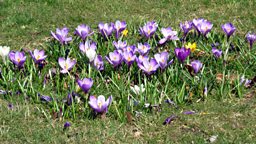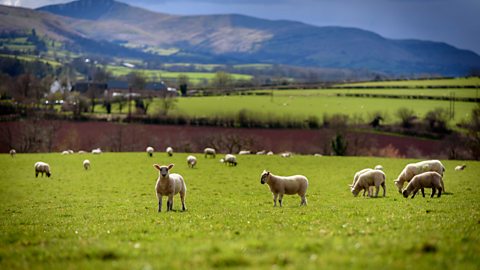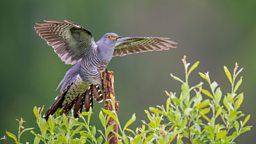12 Spring words to celebrate the new season
The spring equinox means the day and night are of equal length (at around 12 hours each) but soon the days will be longer, spring is about to, well, spring into action – and we can officially wave goodbye to winter.
Here is a selection of words all to do with spring, to help us welcome in the new season.

1. Seedtime
Spring is also “seedtime” – the season when seeds are sown. “Without a generous seedtime, there will be an unflowering summer and an unproductive harvest,” wrote Scottish author Samuel Smiles.
The word has also come to mean a time for new development, or the start of a new cultural or political movement, e.g. the seedtime of a revolution.
2. Lencten
This is an Old English word for spring, and is where the word “Lent” – the period between Ash Wednesday and Easter – derived from.
“Lencten” is likely connected to the Old German words for long and lengthening, and relates to the season’s lengthening days.

Spring now arrives around 26 days earlier than 10 years ago
Lindsey Chapman meets the scientists studying the mechanisms driving the UK's climate.

3. Vernal
Vernal is another word used to describe something of, in, or appropriate to spring. It comes from the Latin “vernus”, which means “of the spring.”
4. Primaveral
If something is “primaveral” it’s of, or relating to, early springtime. The word comes from the Latin “primus”, meaning “first, earliest”, and “ver”, meaning “spring”.
The Italian word for spring is “primavera”, and this is where the pasta dish, brimming with spring vegetables, gets its name.

5. Vernalagnia
Do you feel a bit frisky at this time of year, as the trees start budding, the birds begin to chirrup and the weather warms? Then you are someone who experiences “vernalagnia”, otherwise known as “spring fever”. This word, which describes a romantic mood brought on by spring, is derived from “lagneia”, a classical Greek word meaning “lust.”
6. Blackberry winter
A “blackberry winter” is a colloquial expression used in the south and Midwest regions of the United States. It refers to a cold snap that occurs in late spring, usually May or June, when the blackberries are in bloom.


7. Gowk-storm
The infamous spring bird, the cuckoo, is known as a “gowk” in some Scottish dialects. And a “gowk-storm” is a fall of snow or a gale in early spring that coincides with the arrival of the bird.
In fact, it was commonly thought that the first appearance of the cuckoo actually brought about the untimely weather.
8. Lamb-storm
Similarly, a “lamb-storm” was used to describe a spring thunderstorm, that breaks during the time that lambs are born.
This long-forgotten phrase appears in “A Dictionary of Archaic and Provincial Words, Obsolete Phrases, Proverbs and Ancient Customs from the Fourteenth Century.”
9. Frondescentia
This is an old botanical term, from modern Latin. Its origin is the Latin word for leaf, “frons”, and it refers to the “leafing season”, or the time of the year when plants first unfold their leaves.
10. Repullulate
In the spring, plants, trees and flowers begin to “repullulate” – that is bud or sprout again.
The word appears in a poem called “Spring” by 19th century Kentucky poet Madison Julius Cawein: “Old forests, where the gnarly oak stands regnant, Bristling with twigs that still repullulate, And, swoln with spring, with sappy sweetness pregnant, The maple blushes with its leafy weight.”

Why we love daffodils
It's the national flower of Wales, but you don't have to be Welsh to love the daff

11. Fecund
Fecund is a word often used to describe the natural world in springtime. It means “producing or capable of producing an abundance of offspring or new growth”, or “highly fertile.”
12. Chelidonian winds
The Greek name for the swallow was “chelodian”. “Chelidonian winds” are westerly, or south-westerly, warm winds that start to blow around the same time that swallows begin to return in the spring – and perhaps even aid the birds on their migration from Africa to Europe.
-
![]()
Fabulous flights: 13 amazing facts about bird migration
How do birds migrate 15,00km back to the same place?
More from Radio 4
-
![]()
10 ways to give your garden a spruce-up this spring
Try these simple tips for freshening up your outside space.
-
![]()
Why you need more light in your life
What role does light play in our well-being? How does it affect our bones and our brains?
-
![]()
Fashionable, affordable and green: eight of the best plants for 2020
Celebrating our chlorophyll-full companions we should all get to know.
-
![]()
Nine things you never knew about sheep
James Rebanks reveals some surprising facts about ewes, rams and lambs.





